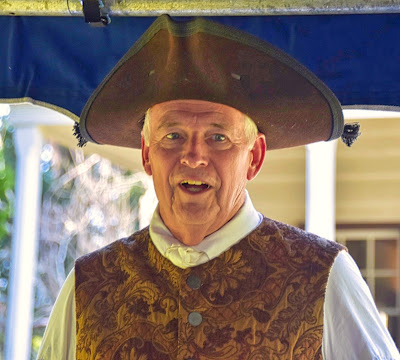Over the next several years, Kingstree and Williamsburg County will mark several milestone anniversaries in the area's history. Next year, 2023, is the 200th, or bicentennial, anniversary of the building of the Williamsburg County Courthouse. Beginning two years ago, in 2020 with the 250th anniversary of the Boston Massacre, communities throughout the thirteen original colonies began marking the American Revolution's Sestercentennial anniversary. For Kingstree and Williamsburg County, 2030 and 2031 will be the years in which most of our 250th American Revolution anniversary events will fall, but planning for those events should begin now. Also, in 2032, the Town of Kingstree will celebrate the 300th, or tricentennial, year of its founding.
A couple of weeks ago, a number of local residents met with Bill Davies of the South Carolina Sestercentennial Commission. He presented information about the 250th anniversary of the American Revolution in South Carolina and encouraged citizens of Williamsburg County to form a committee to not only plan for the upcoming anniversary but to also find ways of telling the story of Williamsburg County's participation in the fight for American independence in an ongoing way to promote the area's history. While most people know the stories of Francis Marion, Thomas Sumter and Andrew Pickens, the state 250th anniversary committee is looking for ways to tell the stories of those whose names may not appear prominently in the history books: women, children, persons of color, indigenous peoples, and those who remained loyal to the King–all of whom played important roles in the fight for independence.
The Williamsburg County Courthouse will celebrate its bicentennial
We here in Kingstree and Williamsburg County won't be starting from scratch in this endeavor. We already know a number of stories, such as those of Margaret Gregg Gordon and Jane Hawkins. Major John James' son, William Dobein James, was just a teenager when he fought alongside his father and General Marion. Dr. Samuel D. McGill, in his book of reminiscences, tells the story of Carolina, who was an enslaved man during the American Revolution, but who fought alongside his master, Gavin James, and afterward gloried in telling and retelling tales of his wartime adventures.
Mr. Davies remarked that the promotion of historical tourism is an important piece in the economic development program of any community. As an example, he used Ninety Six, SC's, American Revolutionary War site, the Star Fort. The fort is not on a major highway. Therefore, visitors to the site don't just stop in; they have made a conscious decision to visit it. In 2019, 95,000 people visited the fort. Those numbers are expected to increase as the 250th anniversary draws closer. And those visitors will also likely stop for lunch or gas or take some time to look around the area. Promoting an area's historic ties is good business for any community.
Another aspect of historical tourism that should not be ignored, Davies said, is genealogical ties. He said surveys show that if five people visit an American Revolutionary War site, whether it's a battlefield or a historic house or building of another sort, one of them is interested in the war from a historical perspective, while four of them believe they had an ancestor involved in the events that took place there.
Here Williamsburg County could really make a big splash. Four companies of militia from this area formed the nucleus of Francis Marion's Brigade. Their descendants are now scattered throughout all 50 of these United States, and with the popularity of genealogy today, it could be a powerful attraction to bring those descendants to visit the area where their forefathers and mothers lived and fought for the nation's freedom.
And, as we think about the Town of Kingstree's 300th anniversary in 2032, having as many genealogy resources as possible available to descendants of the first settlers here could also play a major role in the celebration of the tricentennial. We know that early settler John Witherspoon's great-grandfather was the theologian John Knox and that Knox's second wife, Margaret Stuart, traced her ancestry to Robert the Bruce, King of Scotland. We already see a number of Witherspoon ancestors in Kingstree every year, but perhaps we should marshal our resources and promote more genealogical information about this family and others who settled here in the 1730s and then spread across the country.
In 1973, James A. Rogers wrote this about Williamsburg County in his Pee Dee Pen column in The Florence Morning News. "It's a strange thing about Williamsburg in South Carolina. In contrast to the Williamsburg in Virginia, they make so little of their rich and wonderful history." He went on to write, "There is in Williamsburg history substantial data which, when related to other events of the American Revolution, add up to rather convincing evidence that the successful fight for independence from Great Britain turned in the final analysis upon seeming trifles in the revolutionary history of Williamsburg." That is OUR Williamsburg he was writing about!
Forty-nine years later, perhaps the time has come for us to grab hold of that history and make it shine for the rest of the world to see.





No comments:
Post a Comment